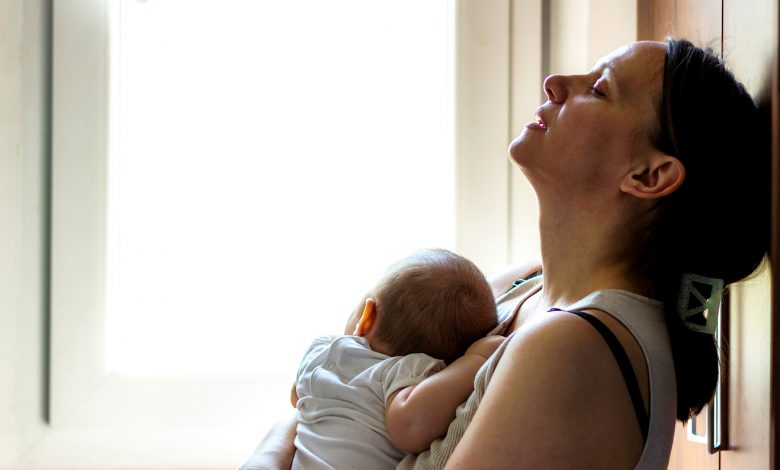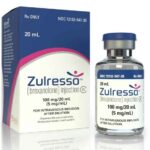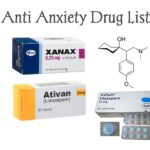Does Brexanolone (Zulresso) Work for Anxiety?

Brexanolone, manufactured by Sage Therapeutics is a new medication approved by the FDA to treat postpartum depression. Postpartum depression is a significant public health problem that affects approximately 13% of women within a year of childbirth. Although rates of depression do not appear to be higher in women in the period after childbirth compared to age-matched control women (10-15%), the rates of first onset and severe depression are elevated by at least three-fold. Depression at this critical period of life carries special meanings and risks to the woman and her family.
Brexanolone is available only under a special program because it can cause excessive drowsiness or sudden loss of consciousness. You must be registered in the program and understand the risks and benefits of this medicine.
How Brexanolone (Zulresso) works
Brexanolone is a derivative of allopregnanolone. In the human body, the hormone progesterone is metabolized into a variety of active and inactive compounds, including allopregnanolone. Because allopregnanolone modulates brain function, it is a hormone with neuroactive properties, a neurosteroid.
How long does it take for Brexanolone (Zulresso) to work?
According to studies conducted among women with postpartum depression, brexanolone starts working within 60 hours (about 3 days) in most women. While many people find that antidepressants work well to help reduce the symptoms of depression, you might not feel better right away. It usually takes at least three to four weeks before you notice a change in your mood. Sometimes it can take even longer.
What is Anxiety?
The American Psychological Association (APA) defines anxiety as “an emotion characterized by feelings of tension, worried thoughts and physical changes like increased blood pressure. Knowing the difference between normal feelings of anxiety and an anxiety disorder requiring medical attention can help a person identify and treat the condition.
The duration or severity of an anxious feeling can sometimes be out of proportion to the original trigger, or stressor. Physical symptoms, such as increased blood pressure and nausea, may also develop. These responses move beyond anxiety into an anxiety disorder.
The APA describes a person with anxiety disorder as “having recurring intrusive thoughts or concerns.” Once anxiety reaches the stage of a disorder, it can interfere with daily function.
While a number of different diagnoses constitute anxiety disorders, the symptoms of a generalized anxiety disorder (GAD) will often include the following:
- restlessness, and a feeling of being “on-edge”
- uncontrollable feelings of worry
- increased irritability
- concentration difficulties
- sleep difficulties, such as problems in falling or staying asleep
While these symptoms might be normal to experience in daily life, people with GAD will experience them to persistent or extreme levels. GAD may present as vague, unsettling worry or more severe anxiety that disrupts day-to-day living.
Does Brexanolone (Zulresso) work for anxiety?
Researchers have hypothesized that brexanolone may help improve the symptoms of anxiety by modulating the hypothalamic-pituitary-adrenal or HPA axis which mediates the body’s response to stress and is modulated by GABAergic signaling. Brexanolone appears to work differently from traditional antidepressants which increase levels of neurotransmitters, such as serotonin or norepinephrine.
However, Brexanolone (Zulresso) is not approved for anxiety but for postpartum depression. You should not use Brexanolone (Zulresso) to treat symptoms of anxiety without first discussing it with your doctor or healthcare provider. Untreated anxiety can lead to other mental disorders, such as depression or substance abuse. People with anxiety, especially when not properly treated, have a higher risk of suicide or self-harm behaviors. People with untreated anxiety may lead a life of isolation.





